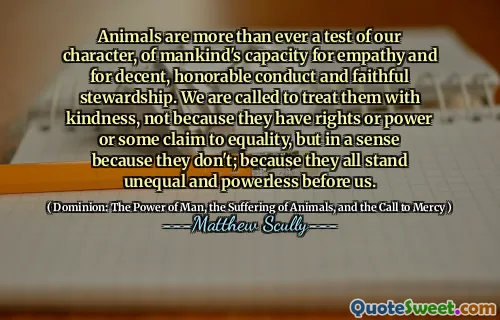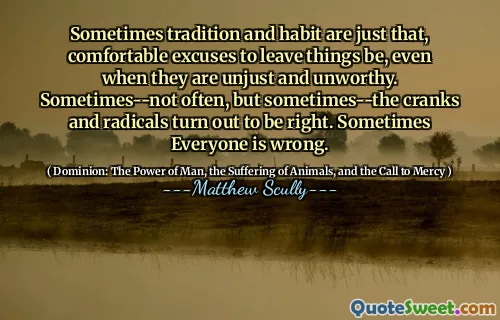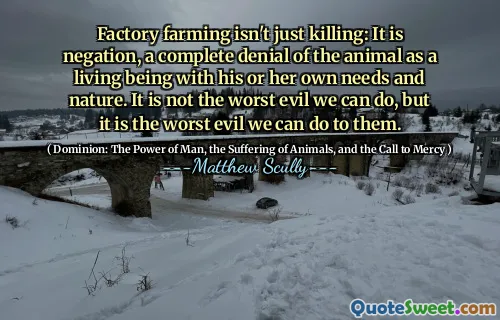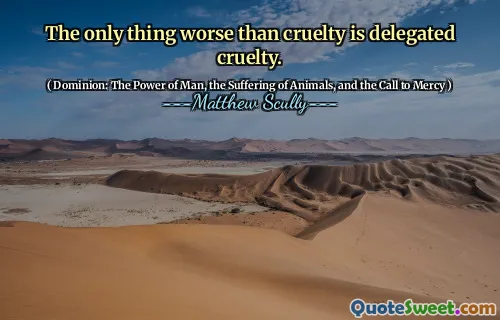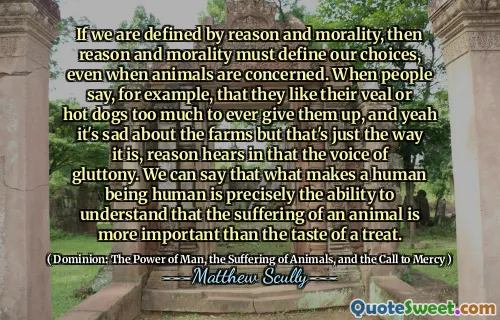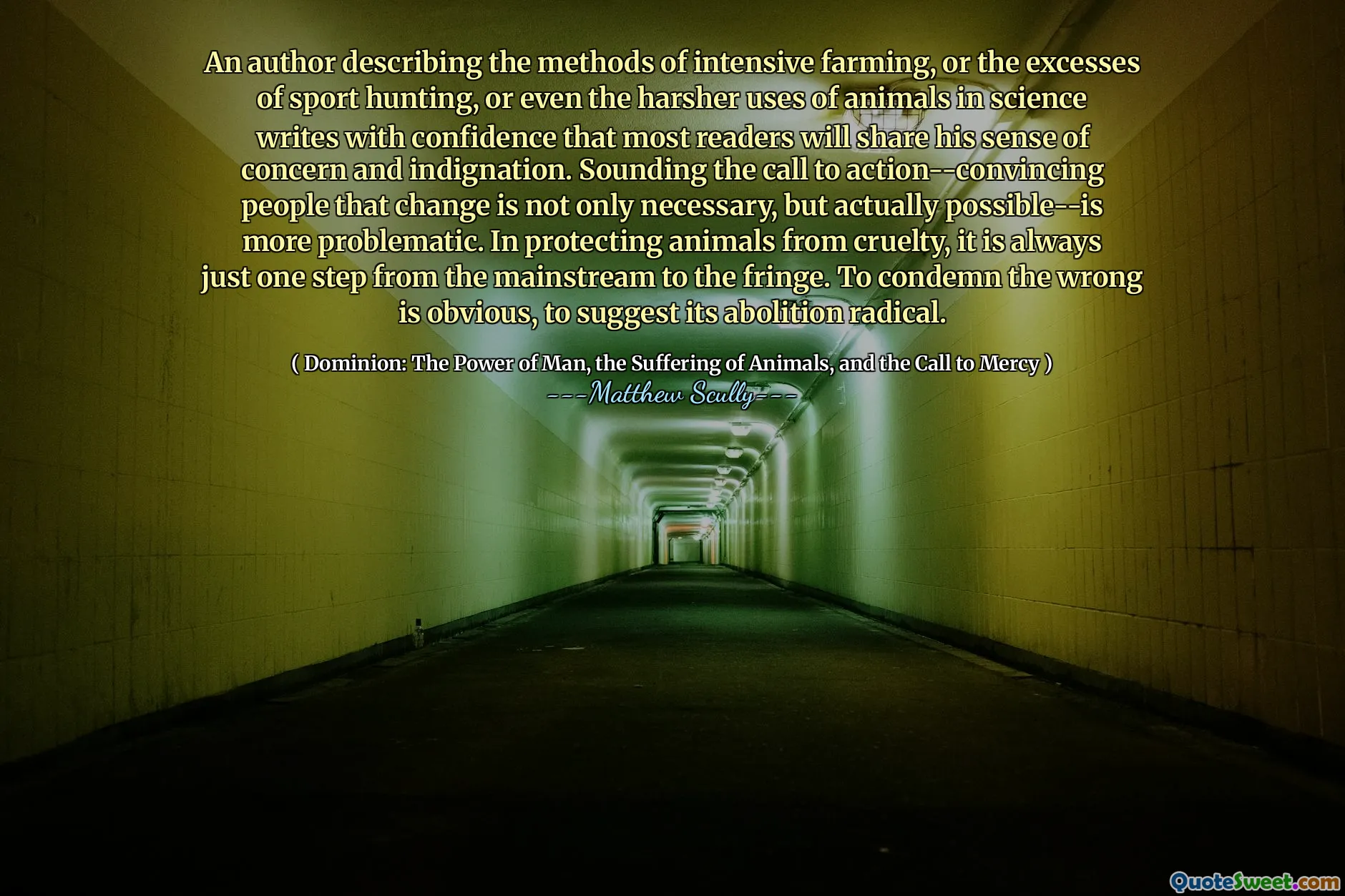
An author describing the methods of intensive farming, or the excesses of sport hunting, or even the harsher uses of animals in science writes with confidence that most readers will share his sense of concern and indignation. Sounding the call to action--convincing people that change is not only necessary, but actually possible--is more problematic. In protecting animals from cruelty, it is always just one step from the mainstream to the fringe. To condemn the wrong is obvious, to suggest its abolition radical.
In this excerpt from Matthew Scully's "Dominion," the author discusses the widespread concern surrounding the treatment of animals in various contexts such as farming, sport hunting, and scientific experimentation. He portrays a shared sense of outrage among readers towards these issues, indicating that they are aware of the unethical practices involved. However, while condemning these actions is generally accepted, proposing substantial changes can be met with resistance, as it often seems radical to advocate for their complete abolition.
Scully highlights the challenge of transitioning from expressing indignation to taking meaningful action. He points out that there exists a thin line between mainstream views on animal welfare and fringe opinions that call for more drastic measures. The difficulty lies in transforming awareness and concern into effective advocacy that truly enhances the welfare of animals. Acknowledging the problems is straightforward, but effectively mobilizing for a change often requires navigating societal norms and perceptions about animal rights.
